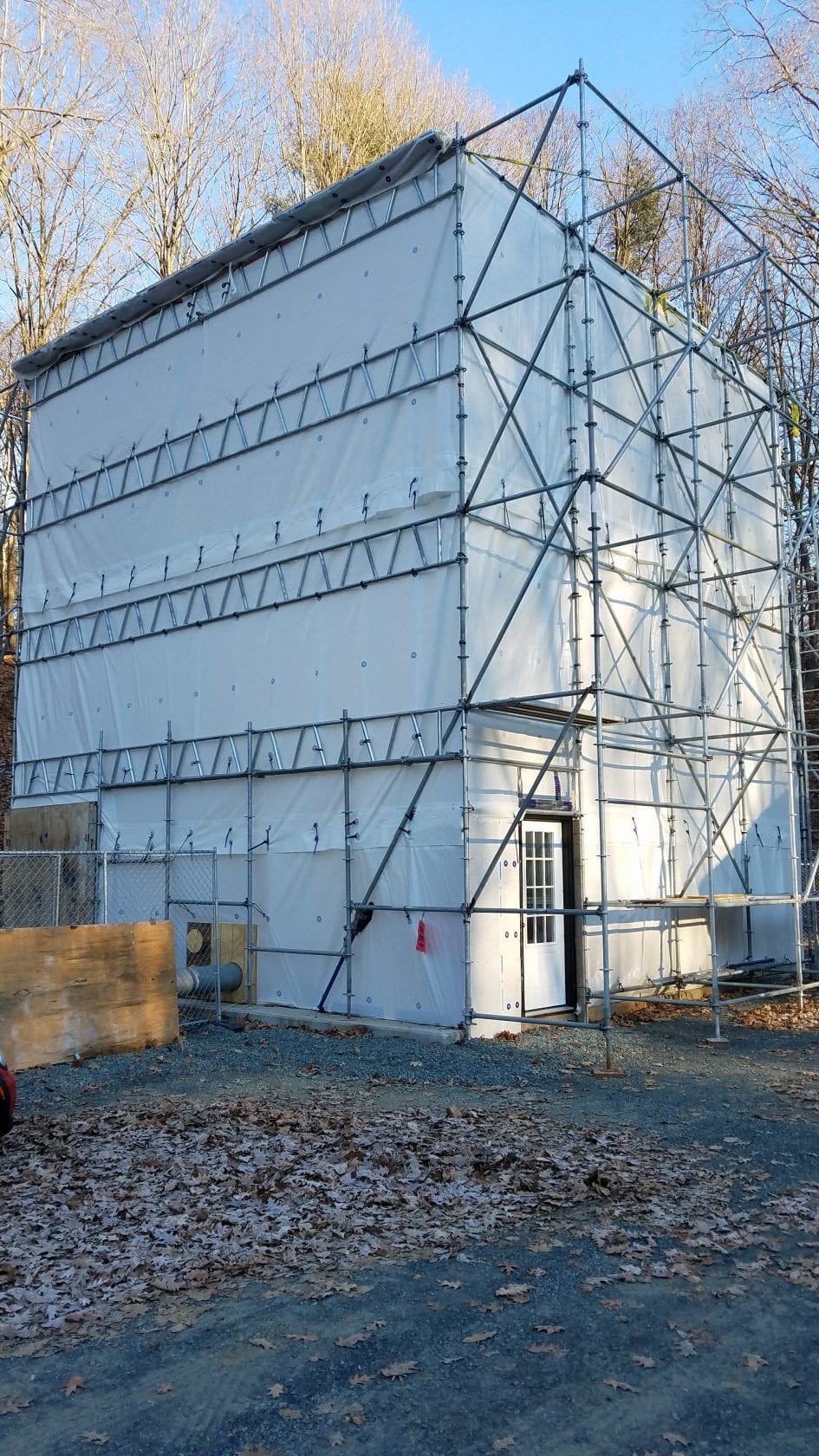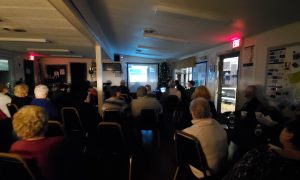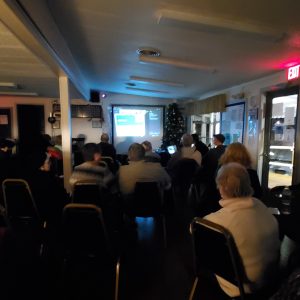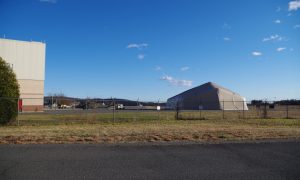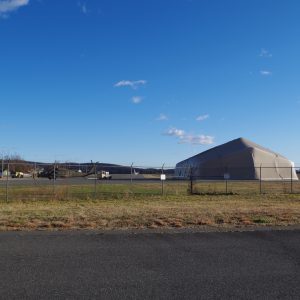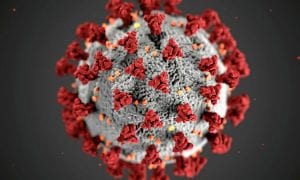WESTFIELD – One of the stories which dominated the pages of The Westfield News in 2018, was the city’s efforts to pass a $13 million bond to filter the four affected northside wells for polyfluorinated compounds (PFAS), caused by contamination from AFFF (aqueous film forming foam) used by the Air National Guard base at Barnes decades ago.
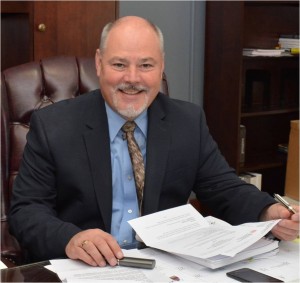
Westfield Mayor Brian P. Sullivan (WNG file photo)
First introduced by Mayor Brian P. Sullivan at the March 1 City Council meeting and referred to sub-committees, the bond was intended for water filtration systems at the four wells (1, 2, 7 and 8) on the north side of town, interconnection with Springfield water, replacement of the East Mountain water tank and repair of other tanks. The road to passage for the bond was a rocky one, however.
At the Finance Committee meeting on March 9, At-large Councilor Matt Emmershy asked why a $13 million bond was needed, when a $5 million bond for a treatment plant for Wells 1 and 2, and one for 7 and 8 had been approved in 2017. Department of Public Works Director David Billips said costs had come in higher for the treatment plants than expected, at approximately $6.9 million each.
At the same meeting, Ward 3 Councilor Andrew K. Surprise had questioned whether the Air National Guard would pay for equipment already installed, before the Department of Defense agreed to reimburse the city for damages. Billips refuted that claim, but both Emmershy and Surprise voted against the bond, which Finance sub-committee chair Dan Allie supported, sending a negative recommendation to the City Council.
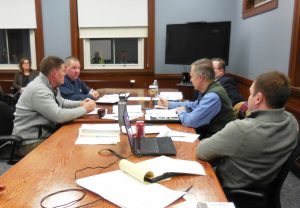
DPW Director David Billips and Assistant Director Francis Cain speak to the Finance Committee about the $13 million water bond. (WNG File Photo)
The bond went to the full City Council on March 16, immediately following a special Legislative & Ordinance committee of the whole, at which DPW Deputy Director Francis Cain and Systems Engineer Heather Stayton went into more detail on the plans. The City Council failed to get a super majority of votes (9) needed and the bond was defeated 8-4, with At-large Councilor Dave Flaherty joining Allie, Emmershy and Surprise in a no vote, one councilor was absent.
With the filtration system on Wells 7 and 8 out to bid and the bond funds needed to go forward, Mayor Sullivan resubmitted the bond at a Special City Council meeting on March 27, bringing with him officials from Law, Water, Purchasing, Treasurer, Collector, DPW, Water Commissioners and his office to answer questions, along with representatives from Tighe & Bond and CDM Smith, who did most of the engineering and preparation for the work to be done on city wells. The bond was referred to the L&O sub-committee.
At the April 5 meeting of the City Council, L&O chair Ralph J. Figy brought forward the bond for a first reading with a 2-0 recommendation. After another lengthy debate, the first reading passed 9-3, with Flaherty, Emmershy and Surprise opposed. The bond was then scheduled for a second reading and final passage.
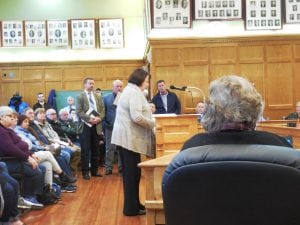
City Solicitor Susan C. Phillips talks to the City Council about pending lawsuits. (WNG File Photo)
The second vote was postponed several times as the debate carried on. Part of the discussion was about what efforts the city was taking to seek reimbursement from the Air National Guard and the three companies that manufactured the AFFF. On May 1, Mayor Sullivan issued a statement regarding the lawsuits, stating that the City had filed a number of legal documents and a lawsuit in order to assess its losses to the responsible parties. “This is a long and complicated process. To date we have filed a lawsuit in the United States District Court against 3M and other corporations who either manufactured or distributed the chemicals causing the water contamination. We have claimed all legally available theories. The City has also filed a Notice of Tort Claim against the United States Air Force, a prerequisite to filing a lawsuit. This notice is required so that the parties may engage in negotiation prior to filing suit,” read the statement.
The Mayor said the City had engaged two nationally known environmental law firms to assist in this process, with both firms having handled similar matters for governmental entities. He also said they were continuing to outreach with legislators, both State and Federal along with all agencies which may have access to funding. The Mayor said his only goal was to bring clean drinking water to the residents of the City of Westfield.
A second vote was taken on May 3, and the $13 million bond failed to get a super majority of votes for the second time. This time the vote was 8 to 5, with Allie, Flaherty, Emmershy, Surprise and At-large Councilor Nicholas J. Morganelli, Jr. voting against it, saying he was concerned about the effectiveness of the filtration on Wells 7 & 8.
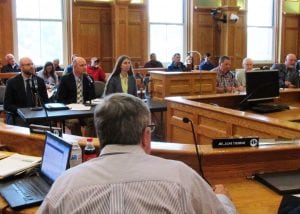
A panel of experts from Tighe & Bond, CDM Smith and the DPW answered questions from the City Council on the water bond. (WNG File Photo)
Undeterred, Mayor Sullivan resubmitted the bond for a third time at the City Council meeting on May 17, where the matter was referred to a special joint meeting of the Zoning, Planning and Development and L&O sub-committees on May 22, to be followed by a Special City Council meeting.
More experts were brought in, who were questioned for two hours by the joint subcommittee, followed by another two hours at the City Council meeting. The three categories of questions included the quality of water in Wells 7 and 8; analysis of options for alternative sources, and how the filtration of 7 and 8 would work. No vote was taken at the end of the four-hour long informational session.
The $13 million bond passed a first reading at the June 7 session. Flaherty said the experts had convinced him that the granular activated carbon (GAC) filtration had enough flexibility built into the system to address the contaminants in Wells 7 & 8.
“What I heard, even if there are higher levels, they can add more carbon, or different bed material. I think they are designing it with the goal of flexibility in the future. They have to do it all day long,” Flaherty said, adding, “CDM is one of the leading experts in the country. I think we have to trust them. The $13 million bond is a lot more than Wells 7 and 8. I think it’s critical that we pass it.”
Finally, on June 28, after four months of review, the $13 million bond passed a second reading and final vote of 9 to 4, with Allie, Emmershy, Morganelli and Surprise opposed.
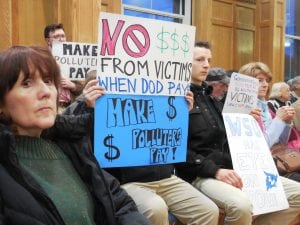
Residents brought signs in lieu of public participation.
The bond then went into a twenty day waiting period. Halfway into that time period, members of the Westfield Residents Advocating for Themselves (WRAFT), led by founder Kristen Mello, started a citizens petition to rescind the bond, calling into question the effectiveness of the GAC filters for Wells 7 and 8, using the catch phrase “too late for 7 & 8,” and demanding that the city adapt its plan.
The petition drive fell short of the needed 3,100 votes by a few hundred, according to Mello, although no signatures were turned in to be verified by the City Clerk. Mello said she would keep the information, and notify the people who signed the petition of ongoing developments regarding water testing in the city. “These people are engaged,” she said.
Meanwhile, the city moved forward with its plans, signing the contract for the water treatment facility for Wells 7 & 8 with R.H. White Construction and Service Solution from Auburn following the 20 day waiting period. Billips said they expected the plant to be up and running in late spring or early summer of 2019. Plans for a temporary filtration on Well 2 also moved forward.
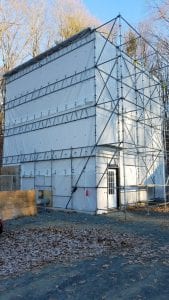
The temporary exterior structure housing Well 2 is seen in this December 2018 image. (WNG file photo)
At the latest update on Dec. 11, Cain said the temporary filter for Well 2 had been operating for over a month, and temporary winter housing completed. Stayton said the well had tested at non-detect levels for the polyfluorinated compounds after filtration, and another test was scheduled by the DEP for mid-December, with the results due in two weeks. Cain said the concrete was poured for the footing on the permanent structure at Wells 7 & 8, and construction was scheduled to continue through the winter. “You should be proud of the people who do it, and got it done,” Cain said.
Still active, WRAFT has changed its focus to seeking participants for a public health study with the University of Massachusetts on the health effects of exposure to polyfluorinated compounds, At a meeting on Dec. 12, Mello encouraged residents to sign up for the study, so that Westfield would be ready when the university’s project gets funded.

